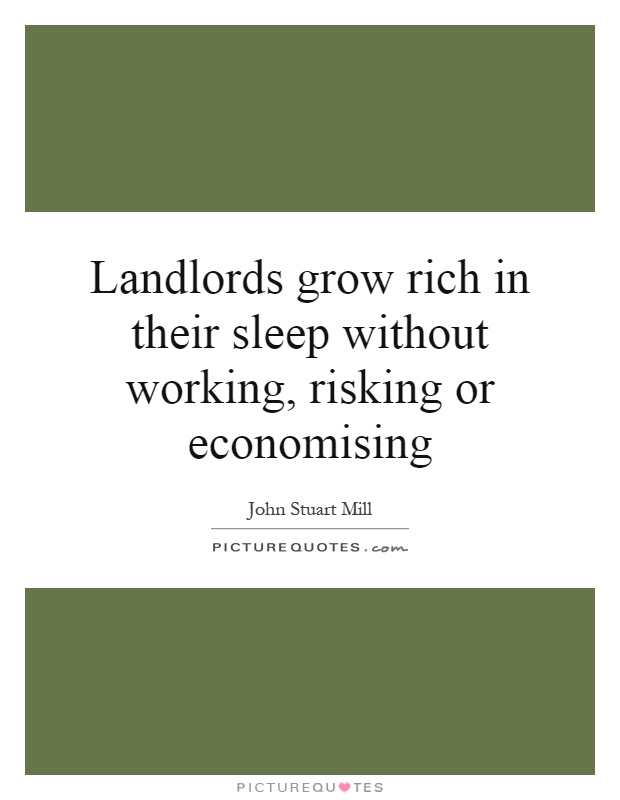Landlords grow rich in their sleep without working, risking or economising

Landlords grow rich in their sleep without working, risking or economising
John Stuart Mill, a prominent 19th-century philosopher and economist, was a staunch advocate for the principles of individual liberty and economic justice. In his seminal work, "Principles of Political Economy," Mill delved into the complexities of economic systems and the distribution of wealth. One of the key issues he addressed was the concept of landlords growing rich in their sleep without working, risking, or economizing.Mill argued that the accumulation of wealth through land ownership was inherently unjust and unsustainable. He believed that landlords, who derived their income from rent paid by tenants, were essentially profiting off the labor and resources of others without contributing anything of value themselves. This, in Mill's view, was a form of exploitation that perpetuated inequality and hindered social progress.
Furthermore, Mill contended that the passive income generated by land ownership allowed landlords to amass wealth without taking on any of the risks or responsibilities associated with entrepreneurship or investment. Unlike entrepreneurs who must innovate, take risks, and adapt to market conditions in order to succeed, landlords could simply sit back and collect rent without having to actively engage in economic activity.
Moreover, Mill argued that landlords did not have to economize or manage their resources efficiently in order to generate wealth. Unlike producers who must carefully allocate their resources and optimize their production processes to maximize profits, landlords could rely on the scarcity of land and the demand for housing to ensure a steady stream of income.












 Friendship Quotes
Friendship Quotes Love Quotes
Love Quotes Life Quotes
Life Quotes Funny Quotes
Funny Quotes Motivational Quotes
Motivational Quotes Inspirational Quotes
Inspirational Quotes